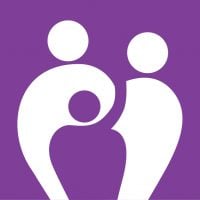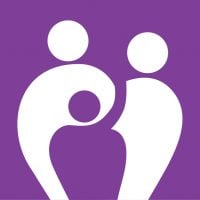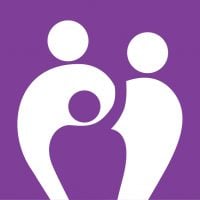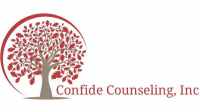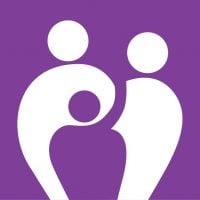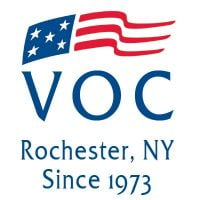Rochester General Hospital - Mental Health Center
Drug Rehab Center in Rochester, New York
Rochester General Hospital - Mental Health Center is a leading provider of individualized mental health services in Rochester, NY, accredited by JCAHO, SAMHSA, and accepting private health insurance.
About This Rochester, NY Facility
Rochester General Hospital - Mental Health Center is a reputable Dual Diagnosis, Mental Health Treatment Facility located in Rochester, NY. With its accreditation from JCAHO, SAMHSA, and State License, this facility maintains high standards and compliance with quality care and treatment. Specializing in helping individuals who suffer from Dual Diagnosis, Mental Health issues, Rochester General Hospital - Mental Health Center offers a range of services to cater to different needs. Their outpatient programs provide flexible treatment options, and they specialize in Dual-Diagnosis Levels of Care, ensuring comprehensive and personalized support. Additionally, the facility accepts Private Health Insurance, allowing individuals to access their services and receive vital treatment and care.
Rochester General Hospital - Mental Health Center offers a wide range of services to assist individuals dealing with addiction and substance abuse. Their dedicated team of professionals provides comprehensive treatment programs that focus on addressing the underlying mental health issues along with addiction. These programs include therapy sessions, counseling, and support groups to help individuals understand and overcome the challenges associated with addiction and substance abuse. The facility's approach emphasizes personalized care and Dual-Diagnosis treatment, providing individuals with the tools and support they need to achieve long-term recovery.
Genders
Ages
Modality
Additional
Accreditations
State License
SAMHSA

JCAHO
Conditions and Issues Treated
People with dual diagnosis have coexisting addiction and a mental disorder. 9.2 million US adults had a co-occurring disorder in 2018, so not just limited to New York residents. Best treatment combines medication, psychotherapy (talk therapy), support group, and inpatient rehabilitation. Sometimes, complementary therapies – yoga, massage, and acupuncture – may also be used.
Levels of Care Offered
This center offers a variety of custom treatment tailored to individual recovery. Currently available are Dual-Diagnosis, Outpatient, with additional therapies available as listed below.
Outpatient treatment can be considered the lowest intensity level of addiction treatment in Rochester, NY. It is ideal for early phase addiction or lower intensity addictions. Rochester General Hospital - Mental Health Center peer group support, 12-step programs, and individual counseling may still be involved.
Rochester General Hospital - Mental Health Center‘s Therapies & Programs
Individual therapy aims to identify the core issues that would have led the patient to substance abuse and address the root cause effectively. Patients find the therapist as a person who they can trust. It helps them to open up and discuss personal and sensitive issues, which they may not be comfortable discussing in a group.
Couples therapy is an approach wherein the patients and their partners are engaged together as a part of the treatment process. When a person becomes a victim of substance abuse, it affects the patient and the people around him, particularly his partner. Their relationship can become strained due to lack of communication, financial issues, loss of trust, lack of intimacy, and physical abuse in more severe cases.
Couples therapy addresses these issues and tries to rebuild the trust between the partners. The partner’s involvement in the process will result in greater chances of treatment success and sustained recovery.
Family therapy is a set of therapeutic approaches that assumes that the entire family is a system. It utilizes the strengths and resources of the family to help the patient refrain from resorting to substance abuse. It helps to repair relationships and improve communication between family members.
Group therapy happens at Rochester General Hospital - Mental Health Center in a controlled group environment, as opposed to a one-on-one setting. It supports Rochester, NY patients’ recovery by offering a sense of comfort and letting them know that they are not alone. Through shared conversations, patients also learn to develop faith and understanding and gain insight on their addictions.
Unresolved trauma is often a key reason why many patients resorted to substance abuse. Trauma therapy refers to treatment wherein specialist therapists help the patients to resolve the trauma that led the patients to substance abuse. The trauma could be physical abuse, sexual abuse, war, natural disasters, divorce, accident, loss of a loved one, etc. Thinking of these traumatic events causes emotional disturbances like anxiety, depression and results in addiction. If trauma is the primary cause of substance abuse, then both issues must be addressed. Otherwise, there is a risk of relapse. Trauma therapy also improves the cognitive functions and provides long term benefits.
Dialectical Behavior Therapy (DBT) is an improved version of Cognitive Behavioral Therapy (CBT). DBT is a treatment of choice for people suffering from self-harming behaviors characterized by cutting and suicidal thoughts or inclinations.
This treatment is developed to help individuals recognize their thought patterns, behaviors, and feelings. It has demonstrated its effectiveness for people that are finding it difficult to control their emotions and urges. Conditions such as obsessive-compulsive disorder and borderline personality disorder also benefit from DBT as it imparts individuals stress-management techniques and enhanced self-esteem so they can sustain their sobriety by reducing the impact of triggers and out-of-control emotions.
Cognitive behavioral therapy (CBT) is a way of addressing concerns through talking. It can be used in individual counseling sessions. Talking through issues with professionals at Rochester General Hospital - Mental Health Center can identify sources of discomfort or unhealthy thoughts. It is a way of learning about yourself and your individual perceptions. CBT is a healthy way of addressing some behaviors which may be bringing unintended consequences in your life.
Nicotine replacement therapy (NRT) is a treatment that helps people to quit smoking. NRT reduces the withdrawal symptoms by giving nicotine in low doses. It is safe for most adults, teens and pregnant women should not undergo NRT. Research shows that the use of NRT doubles the chances of quitting smoking.
Patient Experience
Experiential Therapy at Rochester General Hospital - Mental Health Center
Experiential therapy works on the principle that the perception of individuals determines their behavior. It is different from medication and talk therapy and suits those who have difficulty in expressing themselves and interact. Experiential therapy works by using tools and activities to recreate past experiences and encourages the release of suppressed thoughts that were responsible for the negative feelings and drug addiction.
Role-playing, arts and crafts, music, animal care, rock climbing, etc. are some of the activities used in this therapy. Gradually the individual will experience calmness and love and change their perception positively. Other than drug addiction, Experiential therapy is useful in various behavioral and eating disorders.
Payment Options Accepted
For specific insurance or payment methods please contact us.
Is your insurance accepted?
Ask an expert, call (888) 674-0062
Additional Details
Specifics, location, and helpful extra information.
Rochester, New York 14621 Phone Number(585) 922-2500 Meta DetailsUpdated November 25, 2023
Staff Verified
Patient Reviews
There are no reviews yet. Be the first one to write one.
Rochester, New York Addiction Information
More than 2 million New Yorkers are currently suffering from some type of substance abuse and many of those are minors. Alcohol abuse, in particular, is prevalent among those underage. As a result of the high prices and regulation of prescription drugs, many New Yorkers turn to heroin instead. This has led to a serious heroin epidemic in the state.
Rochester, New York, has a high rate of drug addiction and abuse. According to recent statistics, about 9 percent of Rochester residents reported using illicit drugs recently. Alcohol is also a major problem, with nearly 17% of Rochester residents admitting to binge drinking. Families are often torn apart by addiction. The top-rated drug and alcohol treatment centers in Rochester offer evidence-based therapies and holistic treatments to overcome addiction.
Treatment in Nearby Cities
- Saranac Lake, NY (190.4 mi.)
- Massena, NY (180.4 mi.)
- Corona, NY (256.4 mi.)
- Long Beach, NY (271.7 mi.)
- Chappaqua, NY (242.0 mi.)
Centers near Rochester General Hospital - Mental Health Center
The facility name, logo and brand are the property and registered trademarks of Rochester General Hospital - Mental Health Center, and are being used for identification and informational purposes only. Use of these names, logos and brands shall not imply endorsement. RehabNow.org is not affiliated with or sponsored by Rochester General Hospital - Mental Health Center.





